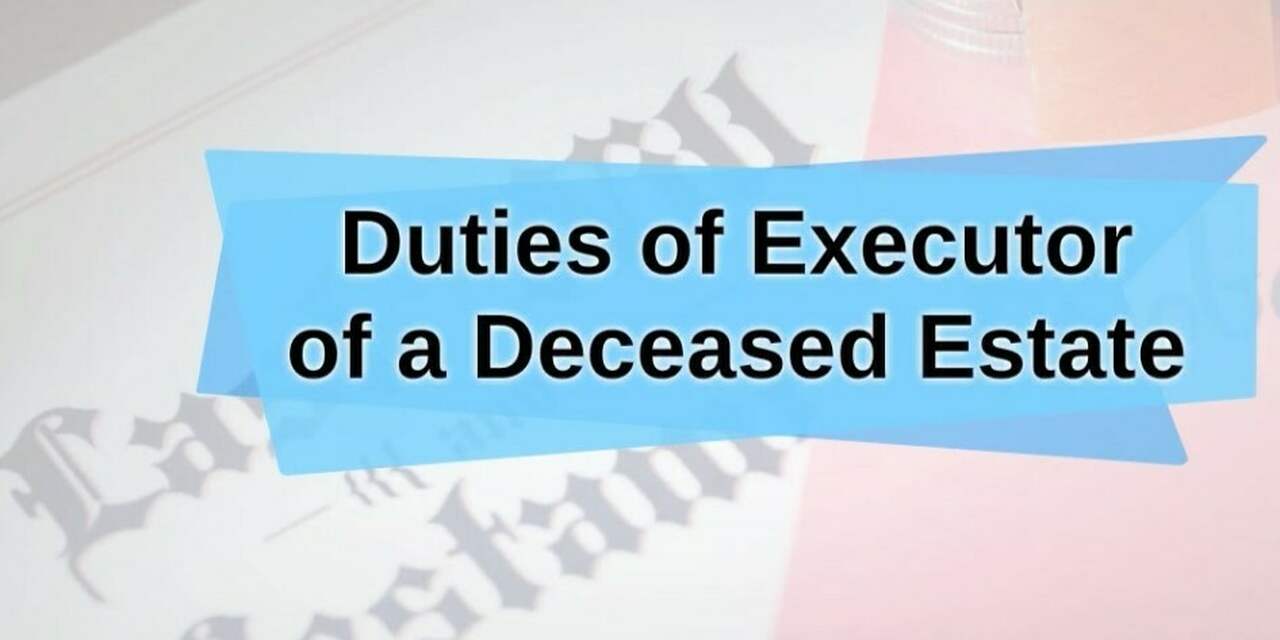After a person dies, someone has to take responsibility for their assets and pay their debts. Where a person is appointed by a will, that person is called an "executor".
If there is no will, or the will does not name an executor, or the named executor doesn't want to be the executor, then the person appointed to finalise the estate is called an "administrator".
Executor vs. administrator – what's the difference?
An executor is chosen by the person making the will, whereas an administrator is appointed by the court.
Another difference is in the form of the application that is made:
- Where there is a will and a named executor, the executor applies to the Supreme Court for a grant of "probate" of the will.
- If there is no will, the applicant applies to the Court for a grant of "letters of administration".
- If there is a will but it does not name an executor (or if the named executor refuses to apply), the applicant applies to the Court for a grant of "letters of administration with the will annexed".
A grant of probate or letters of administration are orders of the Court giving the executor or administrator (as the case may be) the authority to deal with the deceased’s persons property.
An administrator has the same responsibilities and powers as an executor. Accordingly, in this article, a reference to an executor includes an administrator.
How to apply for a grant
In making an application to the Supreme Court, the executor must lodge a formal application in the Supreme Court with the original will and original death certificate, along with an affidavit (a sworn statement) containing:
The Court charges a filing fee for an application for probate or letters of administration.
Executor's duties
There are many duties imposed on the executor of an estate. The most important of the executor's duties is to act in the best interests of the estate and all the beneficiaries.
The relationship between executor and beneficiary is considered a fiduciary relationship, which means the executor must act in utmost good faith and put the interests of the estate and all beneficiaries above his or her own self-interest.
In addition to a duty of utmost good faith, here are some other examples of executor's duties:
- Identify and (if necessary) notify the beneficiaries that the deceased has passed away and that you intend to apply for a grant of probate or letters of administration.
- Arrange the funeral
- Arrange safekeeping of the deceased's assets - make an itemised list
- Obtain a grant of probate or letters of administration
- Take care of any business interests and protect any income sources (including debts owed to the deceased)
- Invest any surplus money appropriately while adminstering the estate
- Insure valuable property appropriately
- Complete the deceased's income tax returns
- Keep accurate records
- Any land in the name of the deceased can be transferred to the executor by lodging the grant of probate with Landgate, together with an application to transfer the land known as a “transmission application"
- Publish a notice pursuant to section 63 of the Trustees Act 1962 (WA)
- Establish any trusts required under the will or by law, such as a minor trust under section 17A of the Administration Act 1903 (WA)
- Distribute the deceased's estate in accordance with the will or the law, and within a reasonable time
The "executor's year"
It is generally accepted that 12 months is a reasonable time for finalising an estate. This is known as the "executor's year". This is not a hard and fast rule, of course, and some estates take longer than this to finalise. However, an executor of an estate should keep in mind that they may become personally liable to pay interest on legacies if they cannot justify any delay in administering the estate.
If you have any questions or want to know more about applying for probate or administering an estate, please
contact us.

